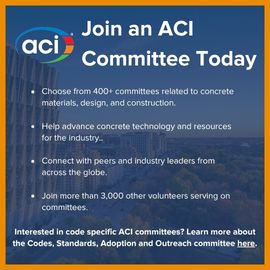
Flooded and Failing: What Happens to Plumbing, HVAC and Gas Systems?
Floods can wreak havoc on the essential systems that make buildings habitable and safe. Building owners, contractors and code officials must understand the vulnerabilities of these systems and act promptly after flood events to inspect, repair or replace damaged components.
Flooding is one of the most damaging natural disasters, with the potential to compromise not just the structure of buildings but also the critical systems that support everyday life.
Heating, ventilation and air conditioning (HVAC), plumbing and fuel gas systems are particularly vulnerable to floodwaters, and the consequences of damage can extend far beyond physical repairs. These systems, essential for hygiene, comfort and safety, require immediate attention following a flood to ensure proper function and prevent hazardous conditions.
The Risks to Plumbing Systems During a Flood
Plumbing systems are at high risk during a flood, especially when floodwaters carry contaminants, chemicals and debris. One of the primary concerns is the infiltration of wastewater into potable water supply lines, creating a serious concern of cross-contamination. Backflow prevention devices may fail under pressure or become clogged with debris, allowing unsanitary water to enter the drinking water system.
In areas where septic systems are used, saturated soil may no longer adequately absorb effluent, leading to surface discharge of untreated sewage. Additionally, floodwaters can damage underground piping, causing leaks or blockages that may not be immediately visible. Fixtures such as toilets and sinks may back up if the drainage system is overwhelmed or obstructed, further complicating post-flood recovery.
Addressing Plumbing Systems Post-Flood
After a flood event, plumbing systems must be thoroughly inspected, disinfected and tested before returning to service. This includes checking for leaks, pressure testing water supply lines and verifying the integrity of sewer and stormwater systems.
The Risks to HVAC Systems During a Flood
HVAC equipment is often located in basements or lower levels of buildings, which are areas most prone to flooding. When submerged, critical components such as motors, fans, circuit boards, insulation and ductwork can be damaged beyond repair. Even when water doesn’t reach mechanical units, high humidity and contaminants carried by floodwaters can compromise system performance and indoor air quality.
One of the key risks of flooding is the development of mold within a system’s components, especially in ducts and air handlers. Mold growth can spread rapidly and affect building occupants long after floodwaters have receded. Flooding can also result in electrical shorts, motor failure or corrosion that degrades equipment over time, making delayed system failure a real concern.
Addressing HVAC Systems Post-Flood
In many cases, HVAC systems exposed to flooding should be replaced, not repaired. Even if components appear functional, hidden damage can pose safety risks and lead to inefficient operation.
Post-flood protocols should include inspection by a licensed professional, disinfection of ductwork and verification that equipment meets safety standards before being put back into use.
The Risks to Fuel Gas Systems During a Flood
Fuel gas systems are particularly hazardous in flood situations. Rising water can displace or damage gas lines, regulators and appliances, creating the potential for leaks and explosions. Submersion can compromise the structural integrity of pipes and fittings or dislodge connections entirely. Water infiltration into gas appliances can also damage safety valves, burners and control systems.
Addressing Fuel Gas Systems Post-Flood
Following a flood, the gas service should be shut off until a qualified professional inspects and tests the system. All appliances that were submerged must be either thoroughly inspected and refurbished to manufacturer specifications or replaced. Attempting to operate flood-damaged gas equipment is extremely dangerous and can result in fire or carbon monoxide poisoning.
Moreover, natural gas meters and regulators located at ground level may also suffer flood damage. Utility companies typically need to assess and, if necessary, replace these components before restoring service.
The Importance of Practicing Safe Flood Recovery
Floods can wreak havoc on the essential systems that make buildings habitable and safe. Damage to plumbing, HVAC and fuel gas systems not only threatens property but also poses serious risks to public health and safety. Building owners, contractors and code officials must understand the vulnerabilities of these systems and act promptly after flood events to inspect, repair or replace damaged components.

Proactive planning, adherence to building codes and investment in flood-resistant design can mitigate some of the risks. With flooding events becoming more frequent and severe, safeguarding these critical systems becomes increasingly important.
For additional guidance on flood safety and recovery, visit the ICC Flood Safety and Recovery Toolkit.
To stay updated on the latest PMG industry news, subscribe to the Code Council’s PMG newsletter here.








